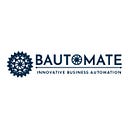In the healthcare industry, managing and processing forms often consume a lot of time and resources. From patient intake forms and insurance documentation to consent forms, healthcare providers deal with a significant volume of paperwork. Manual handling of these forms can lead to errors and delays and impede the entire workflow. However, by implementing intelligent form automation solution healthcare organizations can revolutionize healthcare form management, improve productivity, and enhance patient care. HIMSS revealed that healthcare organizations using automated form workflows experienced an average reduction of 30% in processing times compared to manual processes.
Challenges of Manual Processing of Healthcare Forms
- Overwhelming paperwork: Healthcare organizations deal with numerous forms, including patient registration, consent forms, insurance claims, and more. Managing these forms is manually time-consuming and prone to errors.
- Transcription errors: Manual data entry can lead to mistakes, such as transcription errors which can result in billing issues, treatment delays, and compromised patient safety. These occur at a rate of approximately 10–15%, leading to potential patient safety risks and increased costs.
- Compliance and regulatory requirements: Healthcare forms often need to adhere to strict compliance and regulatory guidelines. Ensuring consistent compliance manually can be challenging and increase the risk of non-compliance penalties.
Switch to Automated Form Workflows to Modernise Your Healthcare
Bautomate offers a cutting-edge solution for all form-led automation requirements in the healthcare sector. Modernize your healthcare operations by implementing form automation solution for various form processes such as registration forms, patient intake forms, consent forms, referral forms, and insurance forms
Eliminating Manual Data Entry:
Manual data entry is the most time-consuming and error-prone task in form processing. Form automation can automate this process using optical character recognition (OCR) technology to extract data from scanned or electronic forms. By automatically populating the electronic health record (EHR) or other systems, healthcare providers can save time, reduce errors, and ensure accurate and up-to-date patient information.
Intelligent Form Routing:
Different forms require different levels of review and approval from various stakeholders. Form automation can intelligently route forms based on predefined rules and workflows. By analyzing the content and context of each form, the system can determine the appropriate path for review, ensuring that forms reach the right person or department at the right time. This automation not only speeds up the process but also ensures compliance and reduces the risk of misplaced or delayed forms.
Automated Validation and Error Checking:
Performs real-time validation and error checking on forms, ensuring that they are completed accurately and in compliance with regulations and internal policies. The system can flag missing information, inconsistencies, or potential errors, allowing healthcare staff to address them promptly. By reducing rework, healthcare organizations can improve data quality, enhance decision-making, and minimize the risk of adverse events.
Integration with Existing Systems:
Form automation can seamlessly integrate with existing healthcare systems, such as EHRs, practice management software, and billing systems. This integration enables automatic data synchronization between different systems, eliminating the need for manual data entry or data migration. By creating a unified and centralized data repository, healthcare providers can access accurate and complete information across the organization, leading to better coordination and continuity of care.
Enhanced Compliance and Auditability:
In healthcare, maintaining compliance with regulatory requirements is of utmost importance. Form automation can enforce compliance by applying predefined rules and regulations during form processing. The system can validate patient consent forms, ensure proper authorization for treatment plans, and flag any potential privacy or security breaches. Moreover, intelligent automation provides an audit trail of all form activities, including who accessed, modified, or approved the forms, enhancing transparency and accountability.
As healthcare providers strive to deliver high-quality care while managing administrative burdens, form automation emerges as a powerful solution to transform form management processes and ultimately improve patient outcomes. Integrating form automation in healthcare workflows resulted in a 50% reduction in paper-based forms and a 25% decrease in overall administrative costs.
Bautomate’s form automation solution holds tremendous potential for streamlining healthcare form workflows. Get a demo now!
